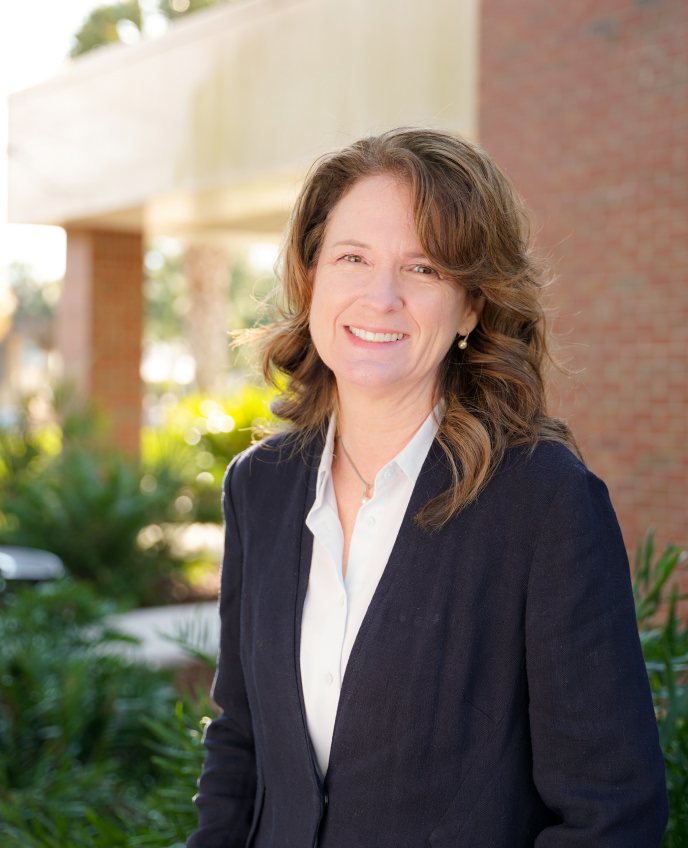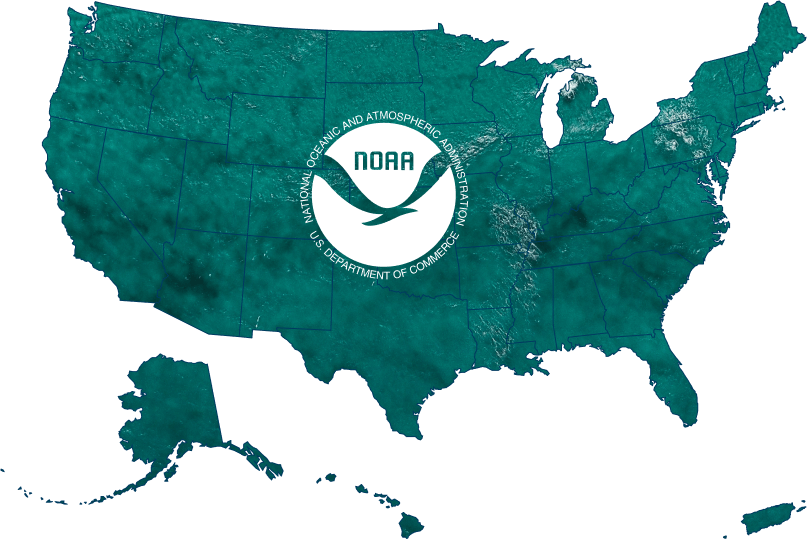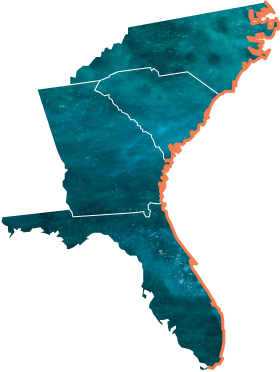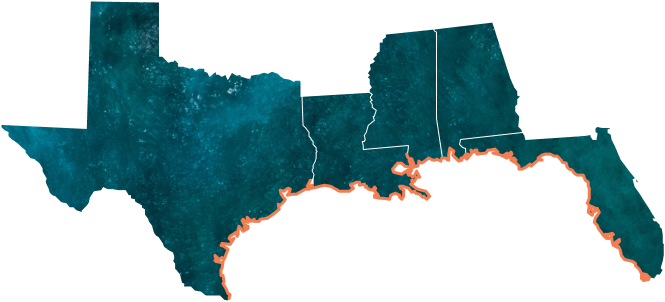About Us
Science Serving Florida’s Coasts
Check out this video to see how Florida Sea Grant is creating science-based solutions for a thriving ocean economy.
A Champion of Florida’s Ocean Economy

Dr. Sherry Larkin, Director of Florida Sea Grant
Who We Are & What We Do
Florida Sea Grant is a university-based program that supports research, education and outreach to conserve coastal resources and enhance economic opportunities for the people of Florida.
We are a partnership between the State University System of Florida, the State of Florida, and the National Oceanic and Atmospheric Administration.
We tap into the research expertise of coastal and ocean scientists through Campus Coordinators at 19 universities and research laboratories across the state. We are also an integral part of our host institution, the University of Florida, which is ranked the #5 Top Public School in 2022 and serves as one of the nation’s leading Land Grant universities.
Our outreach programs are delivered in conjunction with UF/IFAS Extension and coastal counties of Florida. Extension agents live and work in coastal communities. They have a breadth of experiences and tremendous trust from their residents as reliable sources of science-based information. These agents often work collaboratively with specialists that lead highly relevant programs including on seafood safety, aquaculture and fisheries management, coastal ecosystems ecology, coastal planning, coral disease, clean boating, sustainable fisheries, harmful algal blooms and oil spill science.
Our Vision & Mission
Florida Sea Grant envisions a future with a resilient coastal zone where people use natural resources in ways that are beneficial to the economy and society and that preserve their quality and abundance for future generations.
FSG supports integrated research, education and extension to enhance coastal and ocean resources, bolster coastal resilience and enhance economic opportunities for the people of Florida. Our approach to achieving our vision and implementing our mission is contained in our Strategic Plan for FY 2018-23.
We Serve & Support
Fast
Facts
8,436
MILES
OF COASTLINE
>16M
COASTAL
RESIDENTS
>140M
ANNUAL
VISITORS (non-residents)

Our organization
How We’re
Structured
Florida Sea Grant is part of the National Sea Grant College Program.
Florida Sea Grant Works Regionally
As part of a network, the FSG program often works closely with several other programs, including the new National Sea Grant Law Center given that one area of emphasis concerns law and policy – for example, the Center is a co-PI on the new FSG-led Southeast Aquaculture Communications Collaborative. The majority of collaborations are regional in nature as projects focus on an issue rooted in shared resources or risks.
Within the Southeastern U.S., the FSG formally program engages with two distinct NOAA- and Sea Grant-defined regions.

In the South Atlantic, FSG works with Georgia, South Carolina, North Carolina most closely on projects related to coastal resilience and with fisheries. For example, a joint project funded in part through NOAA’s Office of Coastal Management is helping a community in each state adopt a nature-based solution to address flooding that affects transportation corridors. Results from each state are helping generate processes and solutions that can be used throughout the region. Other projects are developing improved estimates of stock size for Greater Amberjack (e.g., leading the research visioning) and Red Snapper with stakeholder engagement facilitated thorough the Sea Grant programs (e.g., organizing media tour).

Within the Gulf of America, formerly Gulf of Mexico, FSG has also worked cooperatively with the Texas, Louisiana, and Mississippi-Alabama programs on coastal resilience and fisheries, but also has a long-standing program on communicating oil spill science. The coastal resilience program is focused on the northeastern Gulf (placeslr.org) and the fisheries efforts are more heavily focused on engagement with recreational anglers, especially those targeting reef fish (returnemright.org).
Finally, the FSG also works closely with the “islands” programs – Guam, Hawaii, and Puerto Rico – as we share an economic dependence on tourism and steward to the nation’s only coral reef systems. Notable programs include efforts to advance literacy in fisheries management (e.g., Gulf and Caribbean Fisheries Professional Development Program and several coral-focused activities, including:
- Blog post from 2023 FSG Knauss Fellow: Charting A Course for Coral Conservation: Lessons Learned from the U.S. Regional Caribbean Stony Coral Tissue Loss Disease Workshop
- Summary of coral rescue workshop: First Regional Gathering on Sharing Strategies for Coral Rescue in the Caribbean
- Guidelines publication for Pacific region: Stony Coral Tissue Loss Disease Surveillance Guidelines for the Indo-Pacific
Visit FSG’s Coral Health Initiative page for additional information.
Florida Sea Grant Serves the State
FSG is a statewide Center of the State University System (SUS) of Florida with links to 19 Campus Coordinators—faculty or administrators at research and academic institutions around the state with expertise in the marine and coastal sciences— that serve as liaisons between the FSG program and their affiliated researchers. This map identifies institutions with active Campus Coordinators.
FSG’s administrative offices are located at the University of Florida (UF) – Florida’s flagship university and Land Grant institution. As Florida’s Land Grant university, UF also houses the USDA’s Cooperative Extension System (CES). While both NOAA and USDA bring science to stakeholders and the public through programs at academic institutions, Sea Grant focuses on coastal and marine issues while the CES addresses uplands, terrestrial and freshwater issues. As a result, combining Sea Grant with Cooperative Extension integrates programs for improved outcomes and impacts at the watershed level. Our 23 extension agents and three tenure-track state specialists are all faculty within UF/IFAS Extension. The organizational chart highlights FSG’s role within UF and shared positions that support the program.
FSG uses Work Action Groups (WAGs) to develop and guide regional and/or statewide integrated efforts that prioritize applied science and associated extension, outreach and education needs. WAGs are ephemeral committees; they are established by need and dissolved when demand wanes. There are currently five WAGs: Fisheries, Aquaculture, SEAS (Shoreline, Estuarine and Aquatic Systems), Climate Change, and Harmful Algal Blooms (HABs). Members of the WAGs include FSG extension personnel, as well as other county and state faculty (e.g., non-FSG Extension agents, FSG Affiliate Faculty with subject matter expertise, and project coordinators supported with leveraged funds).